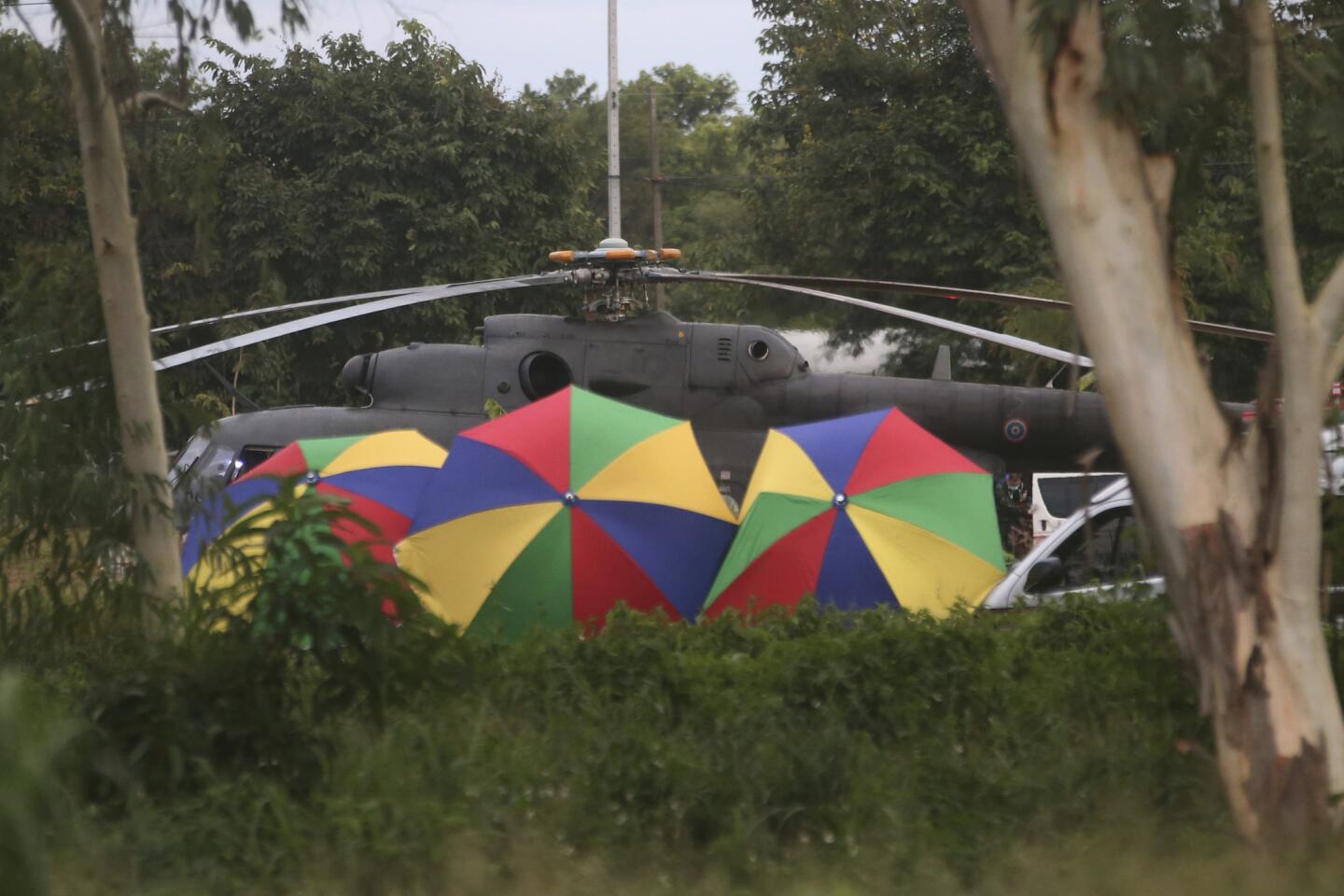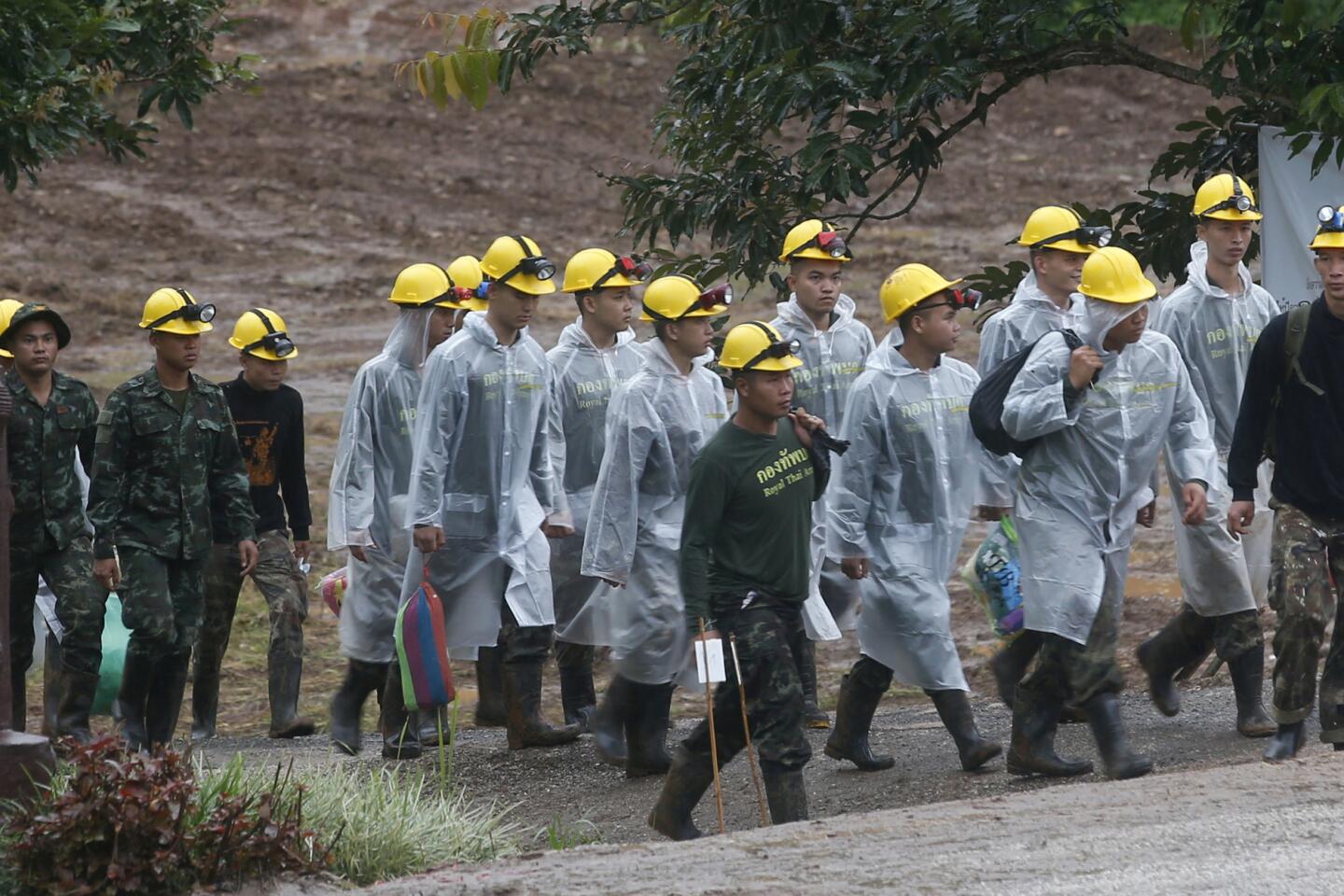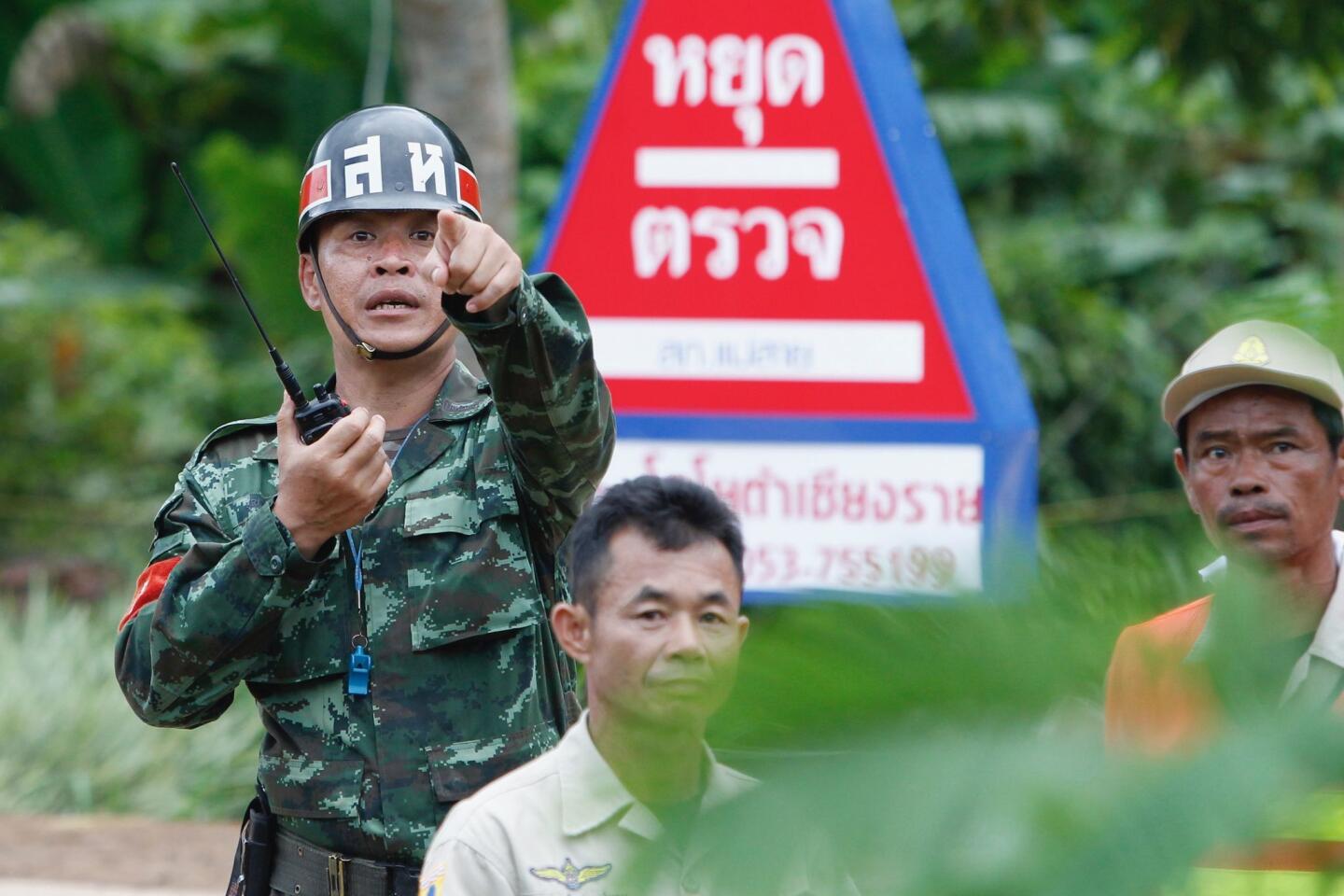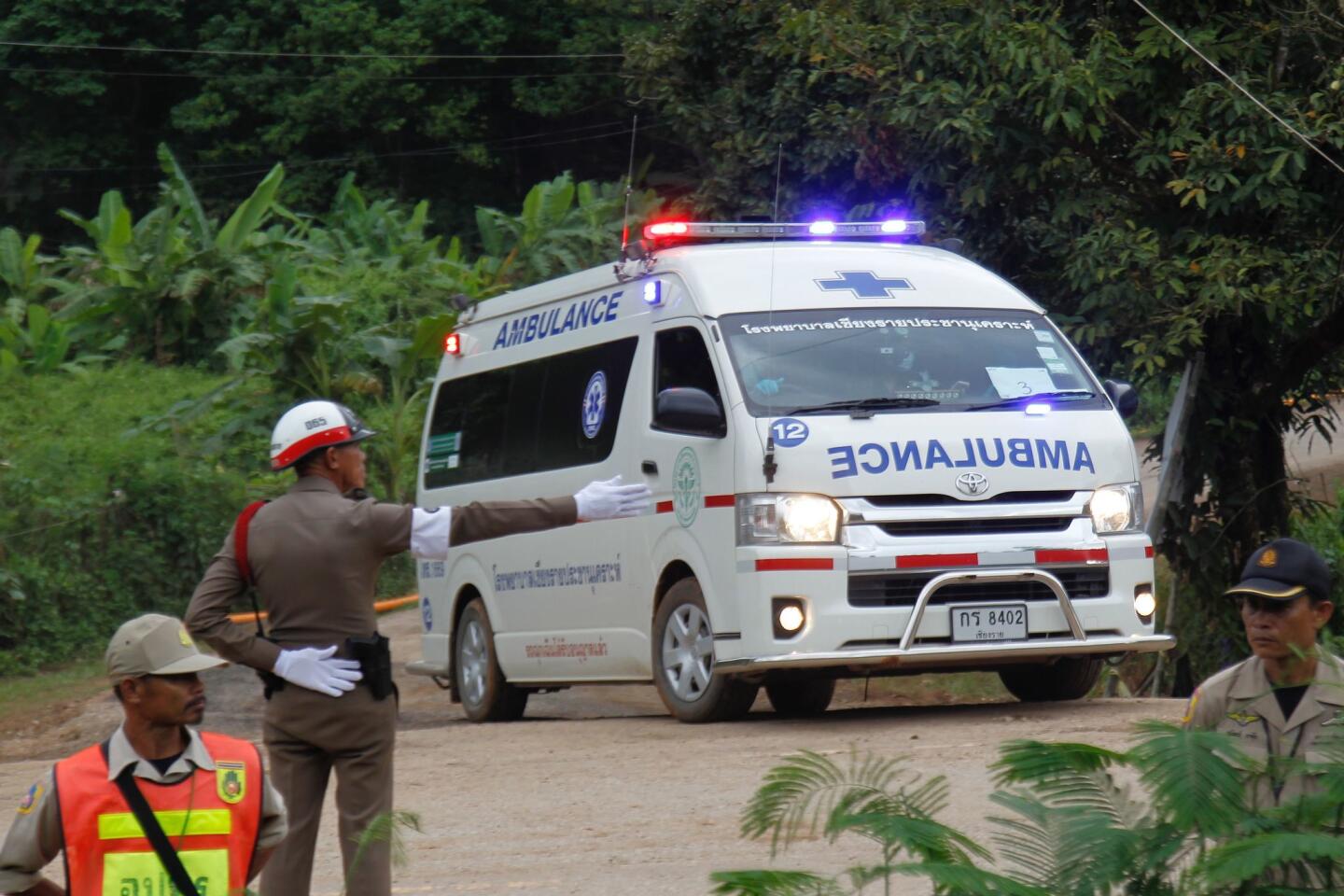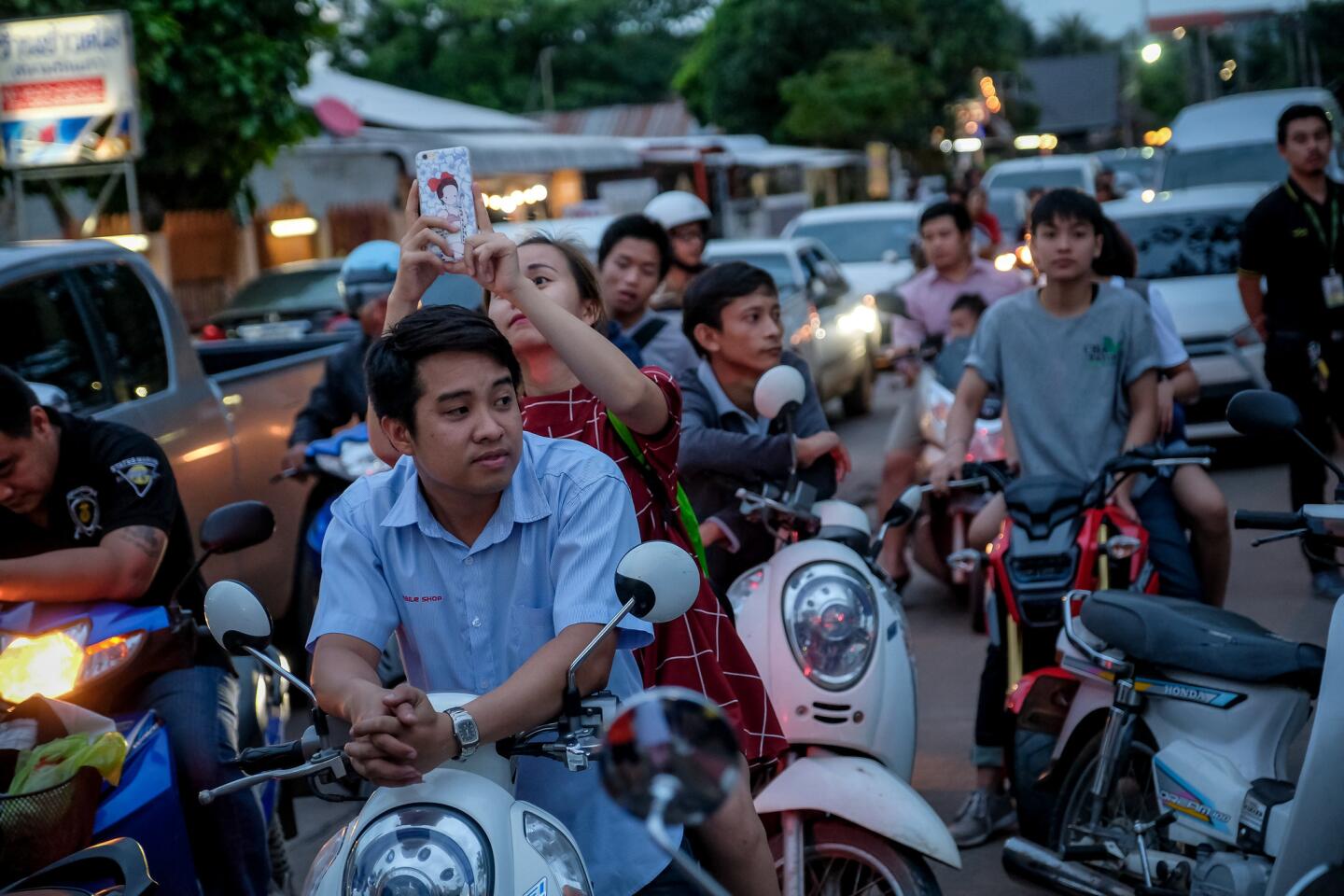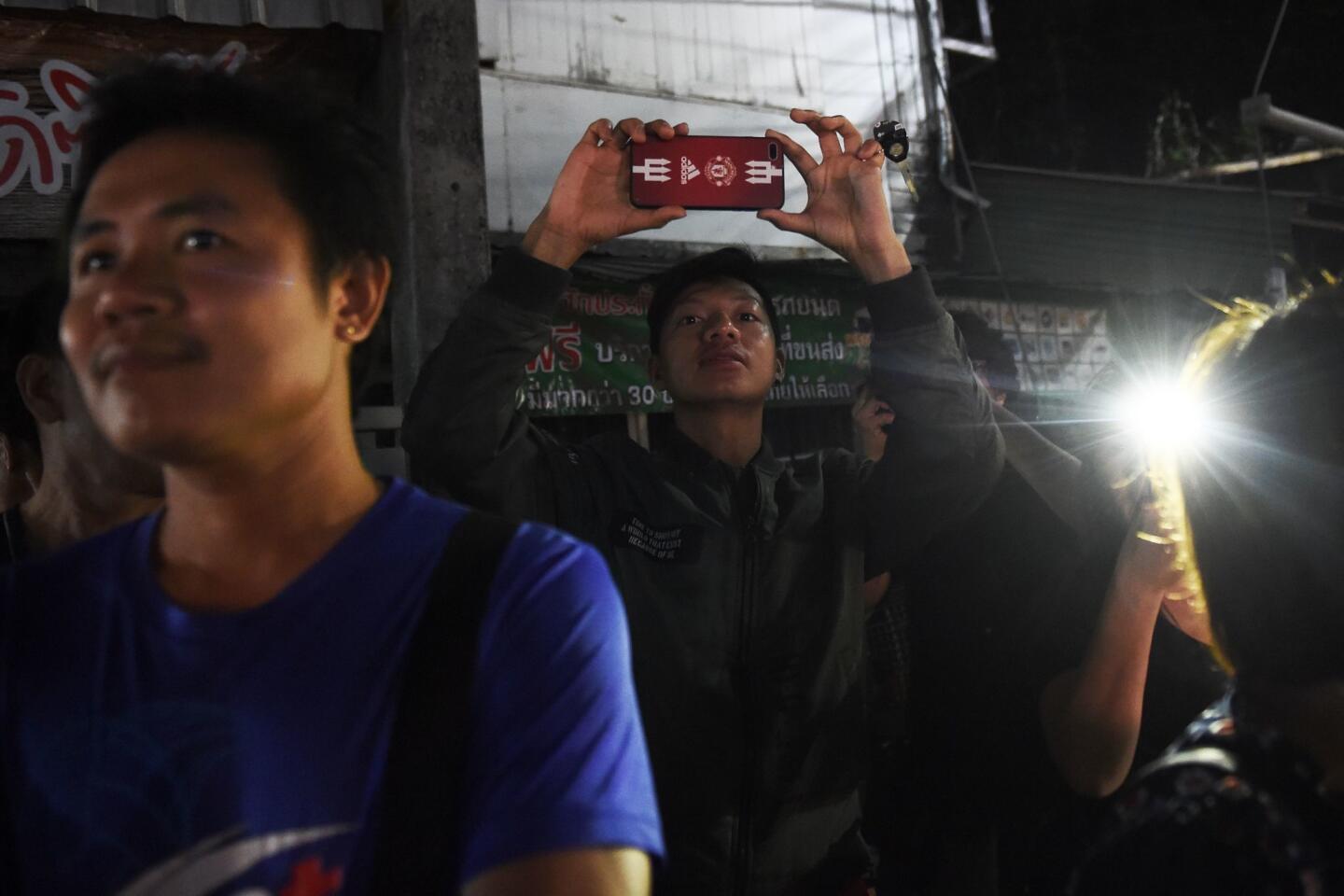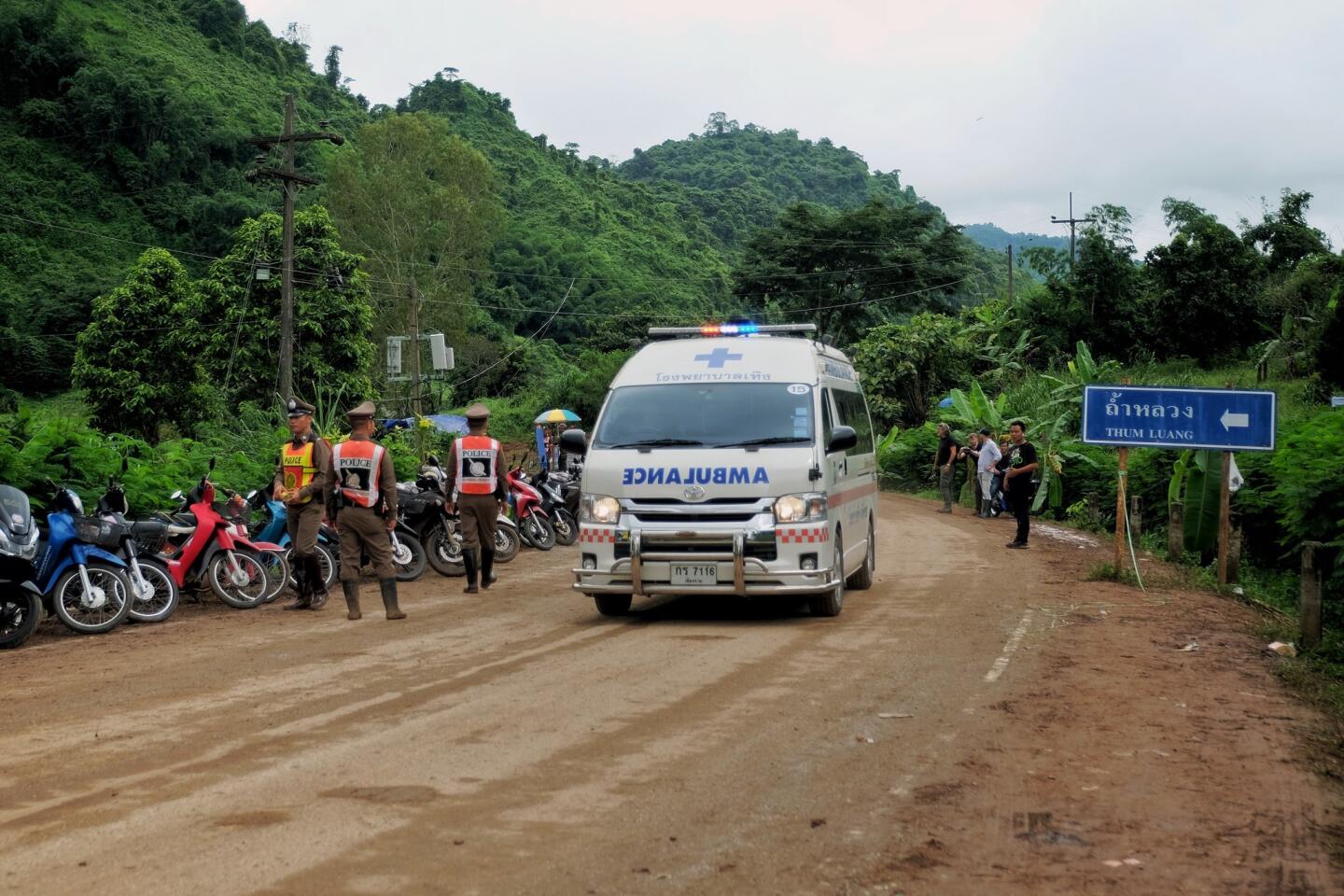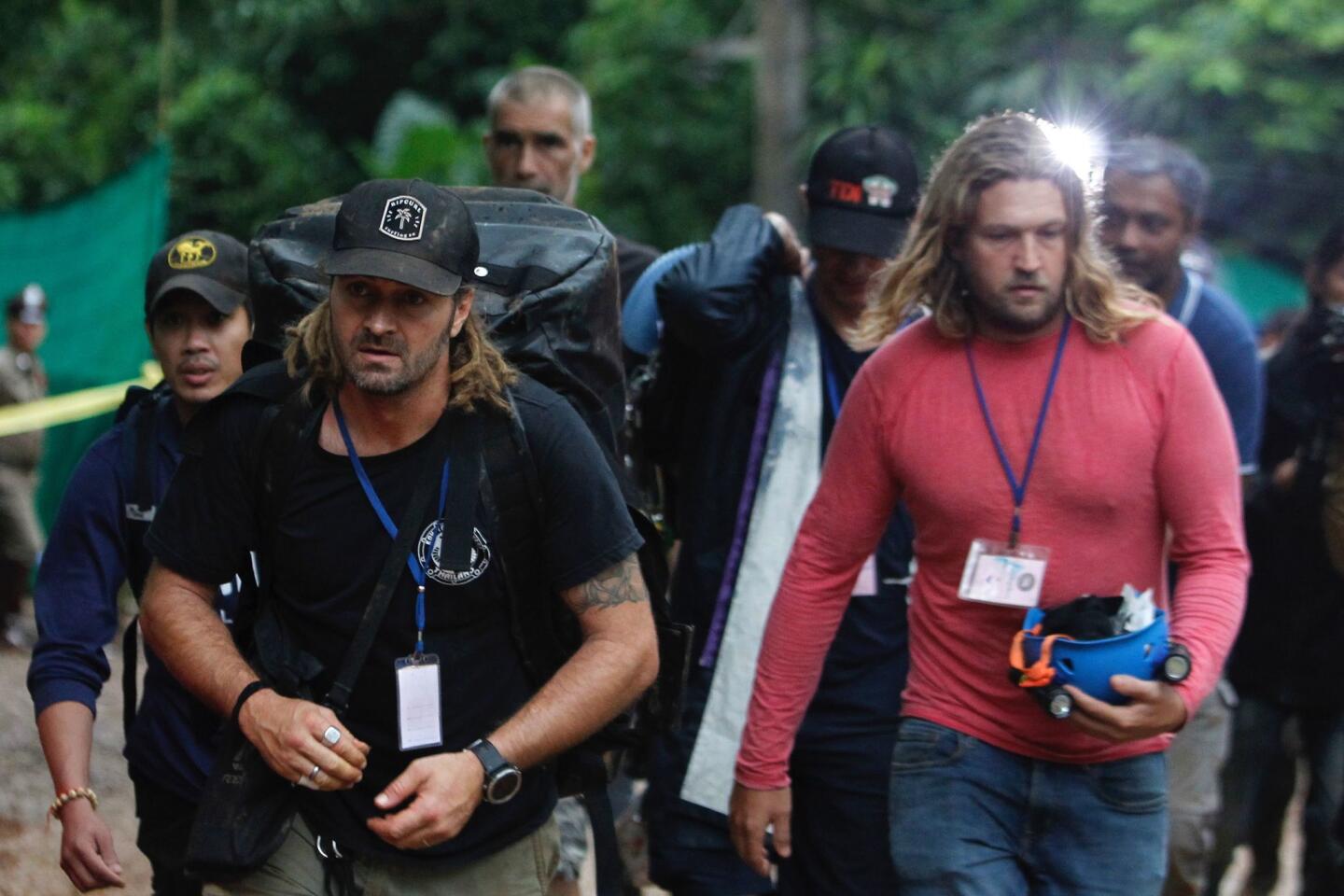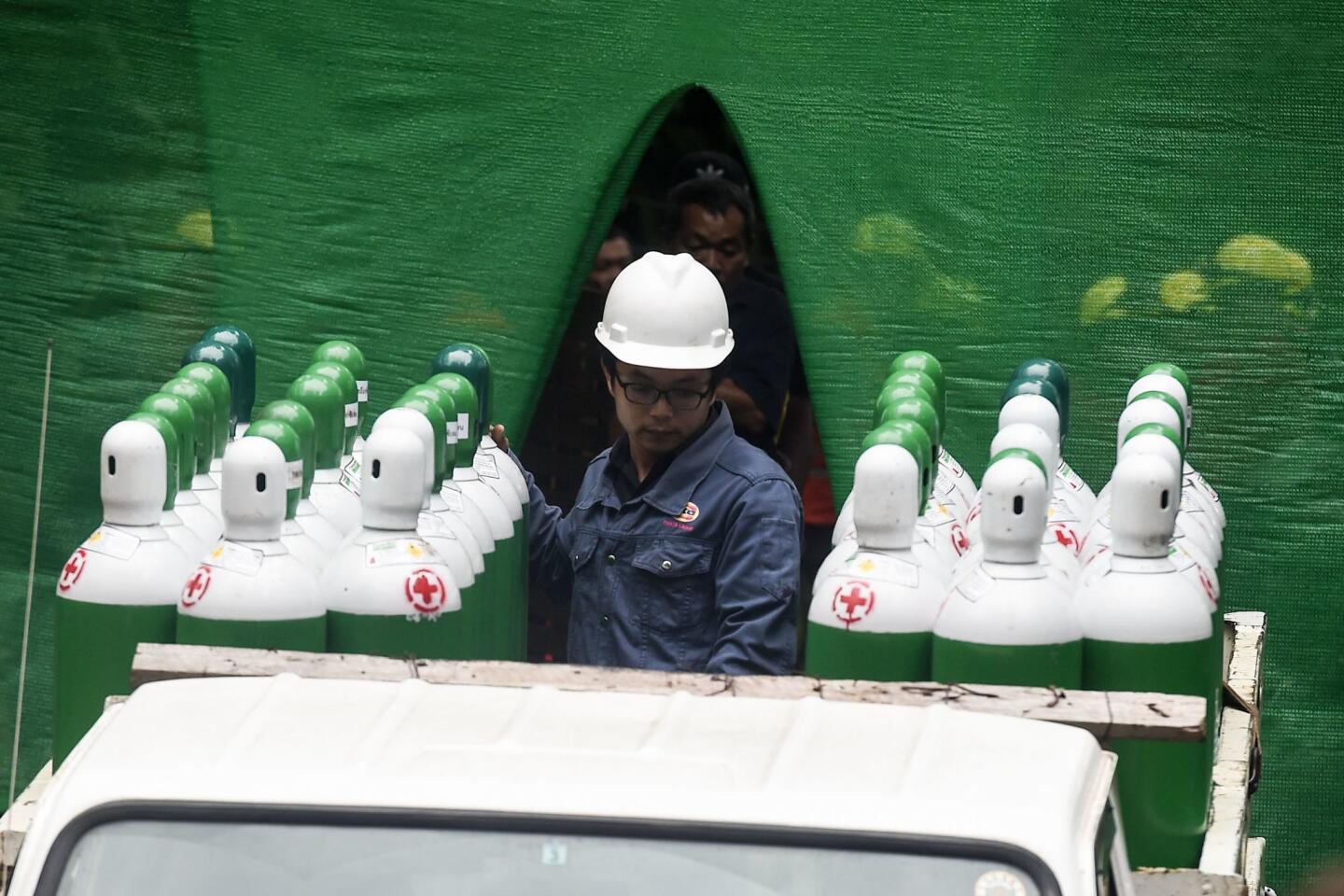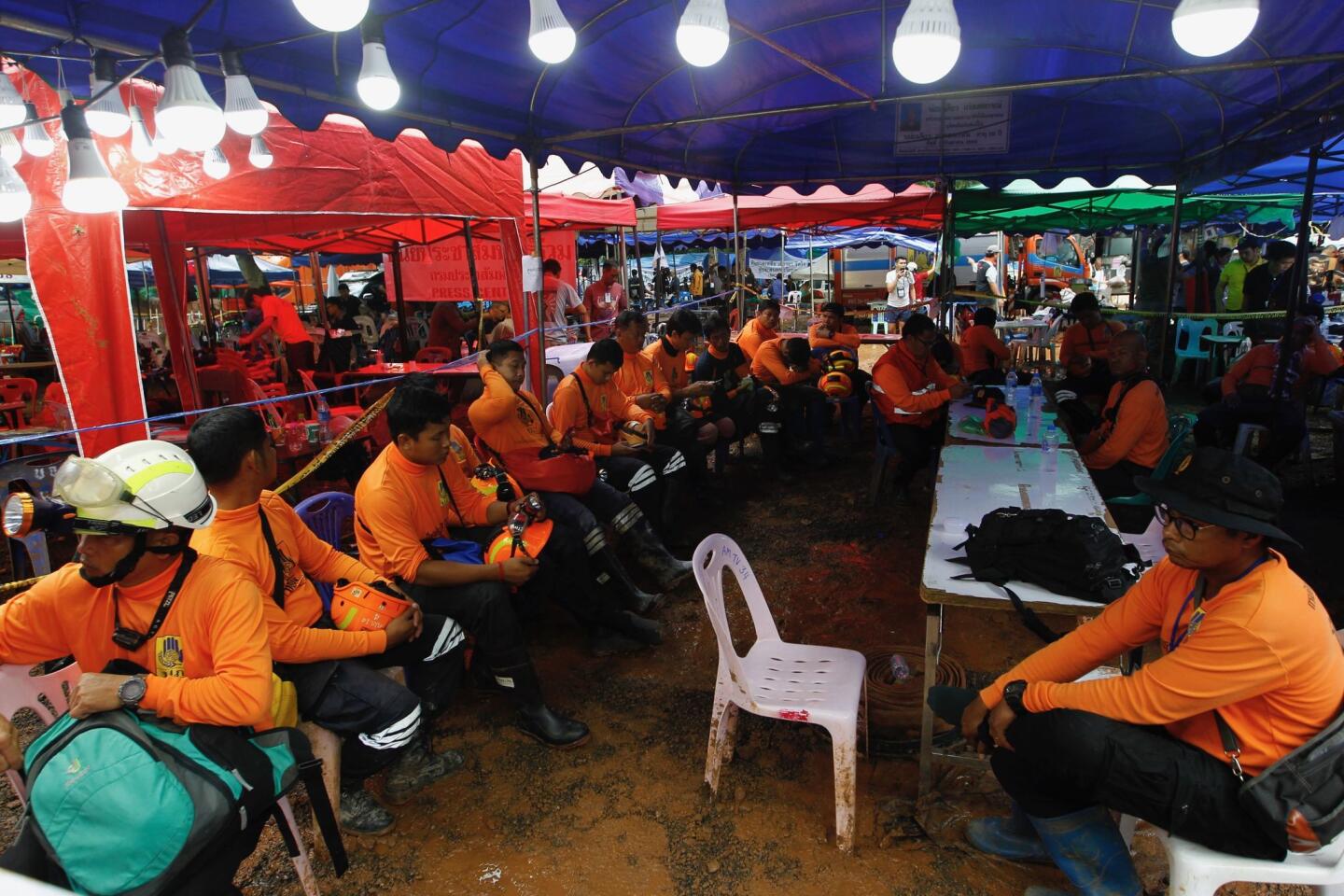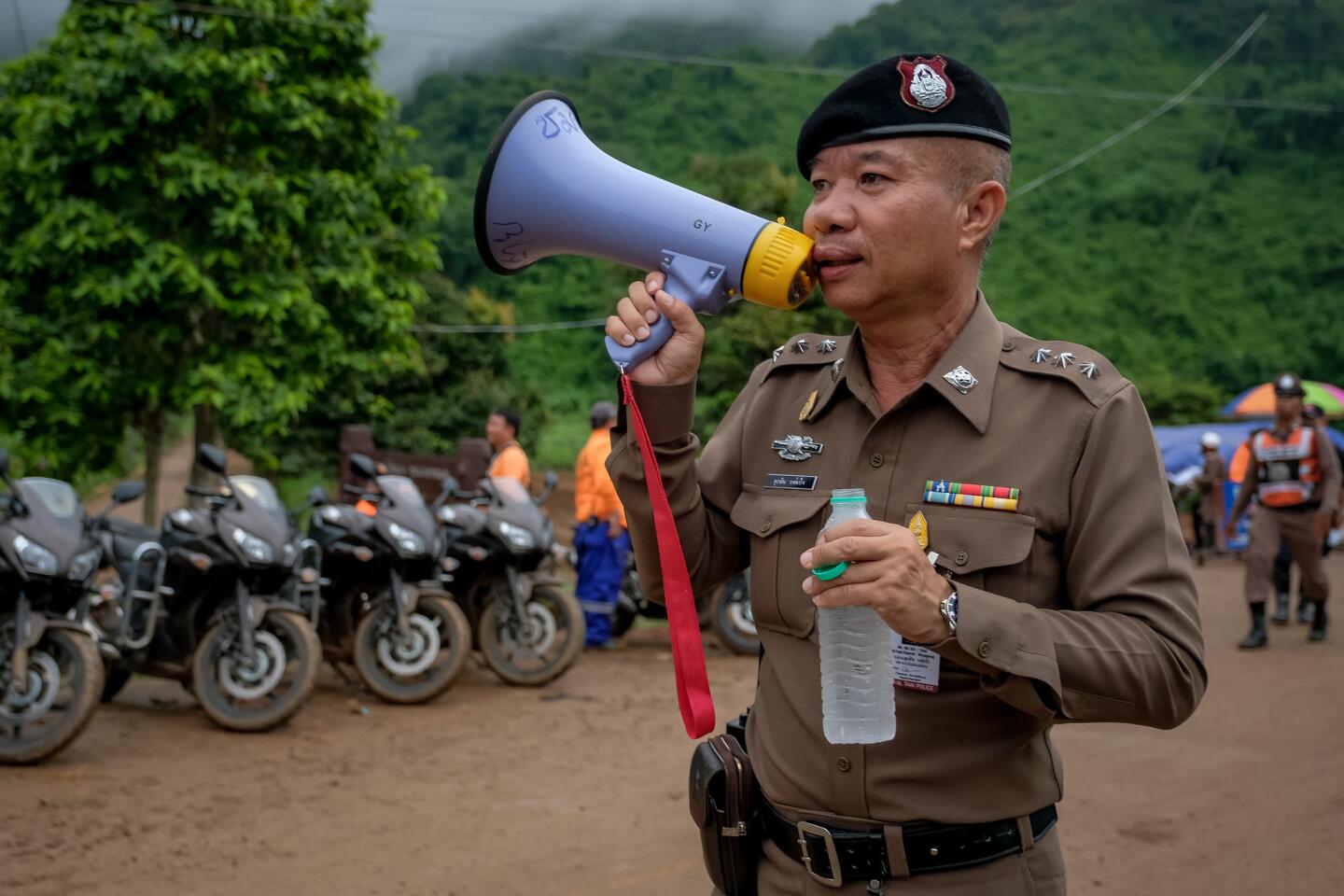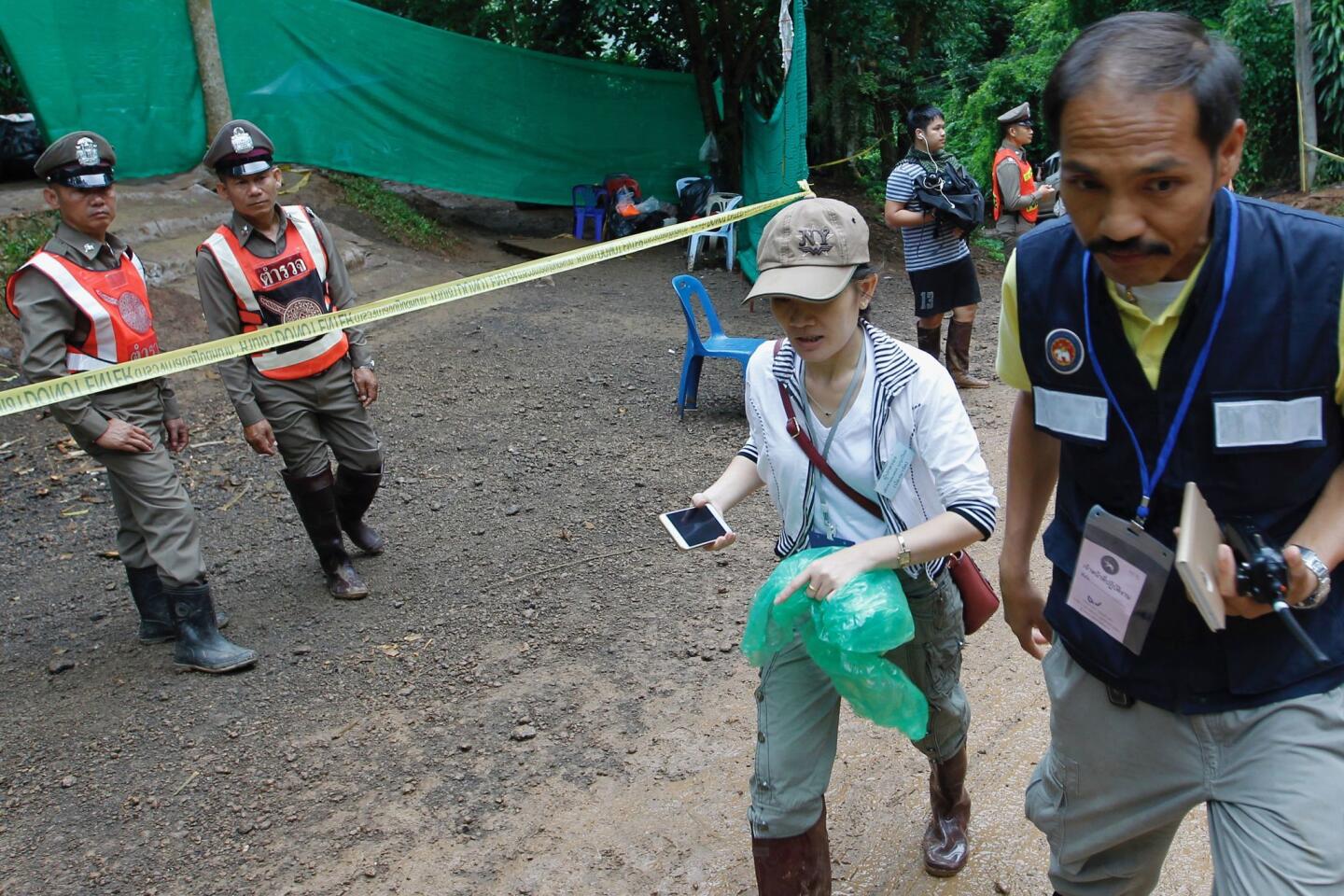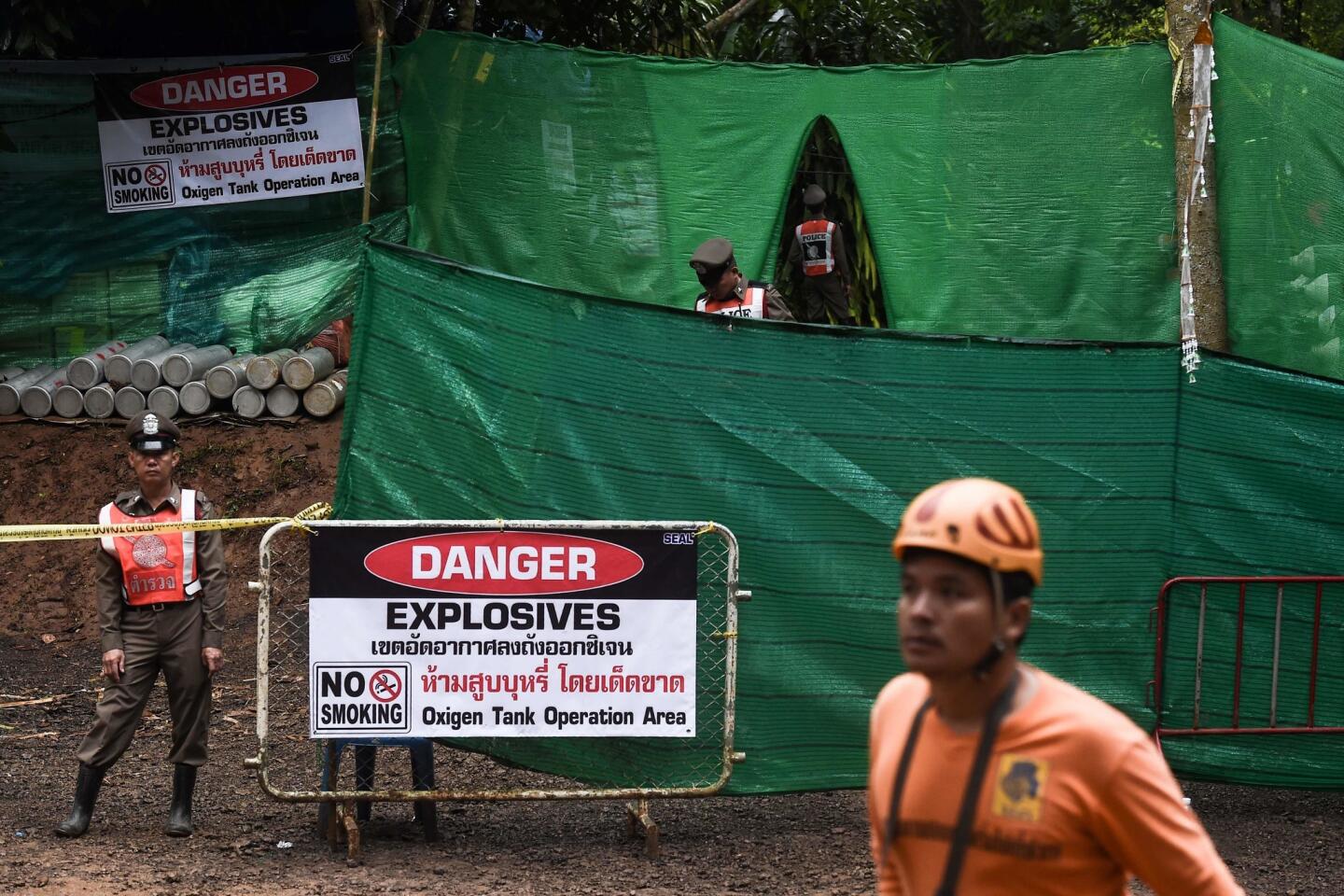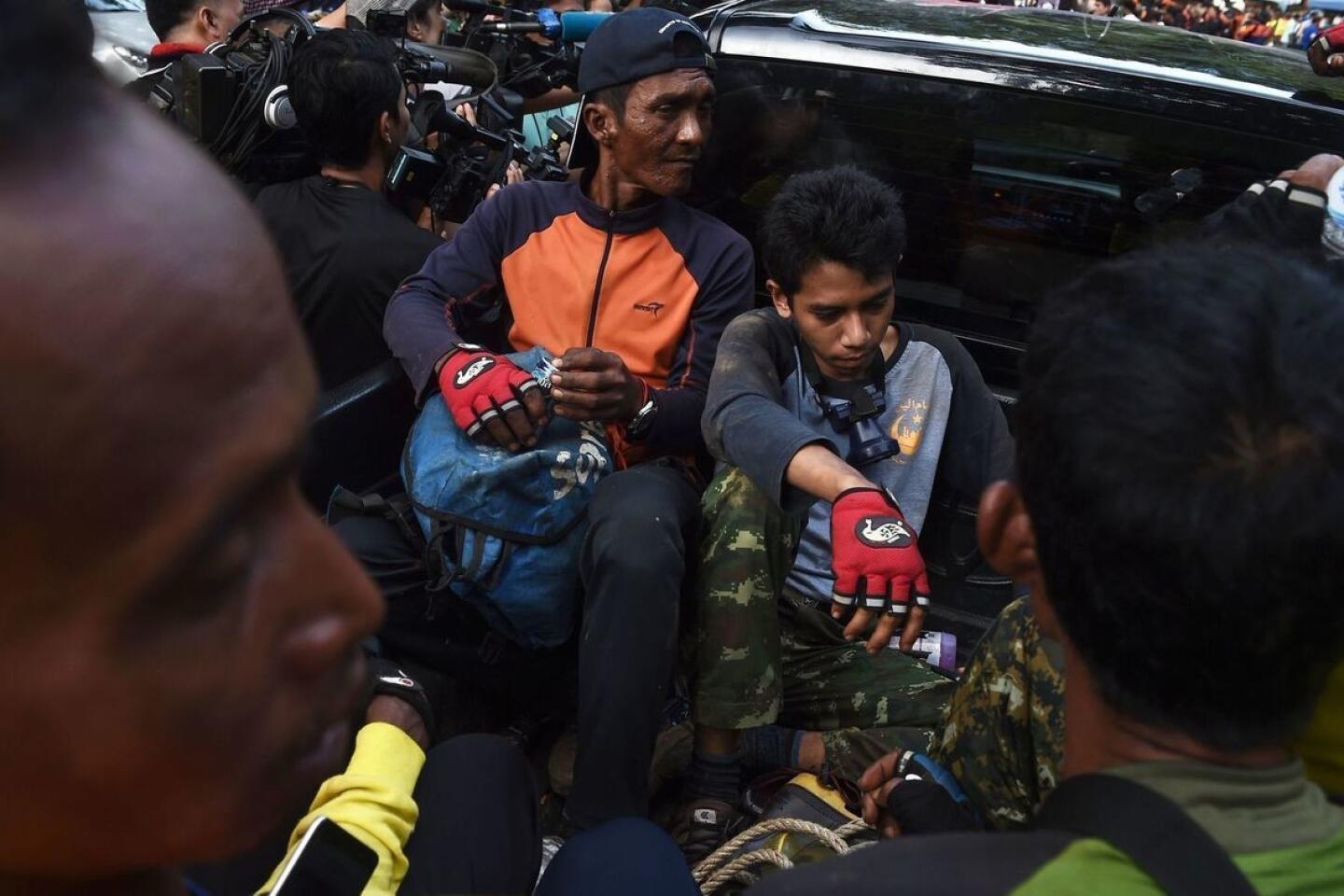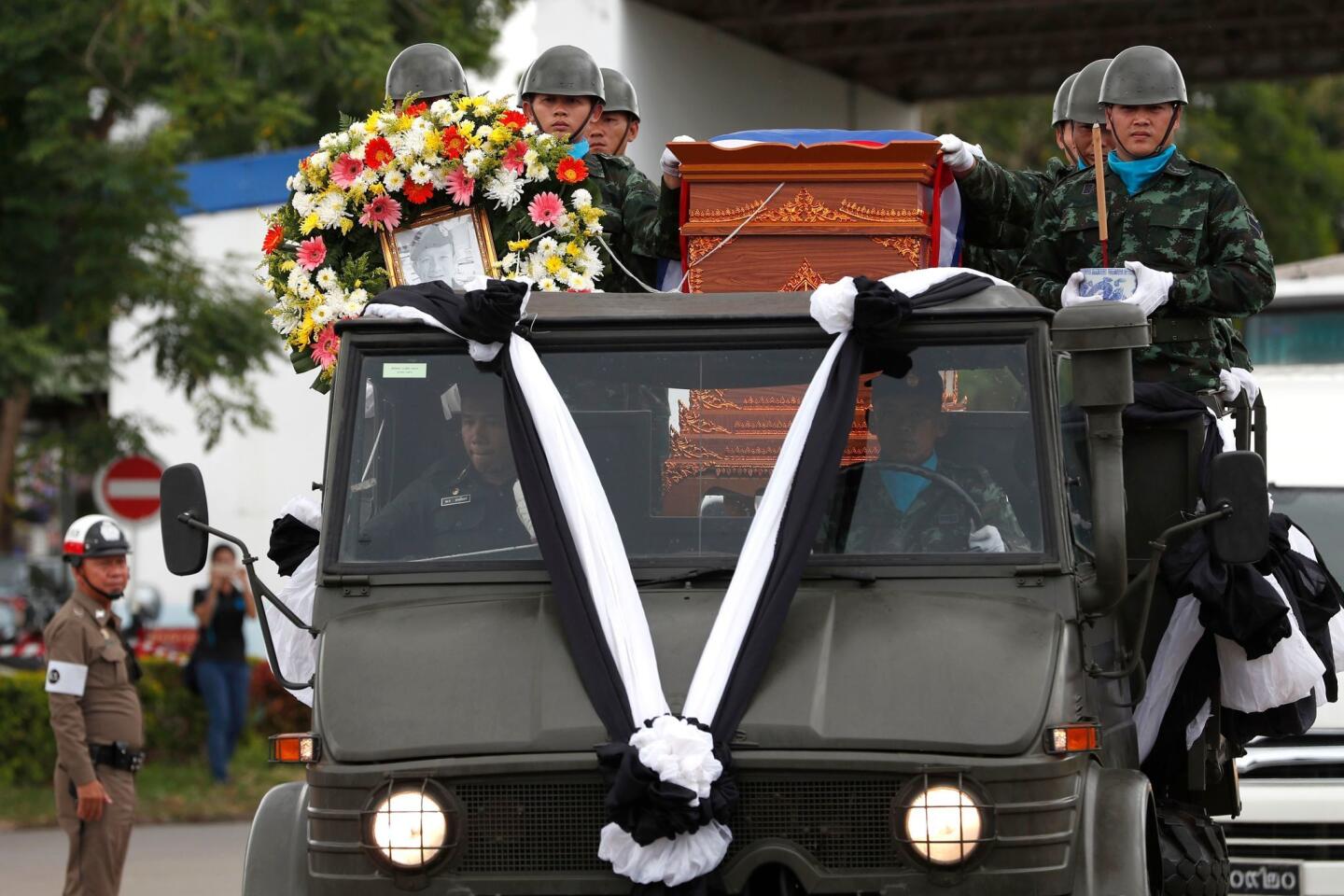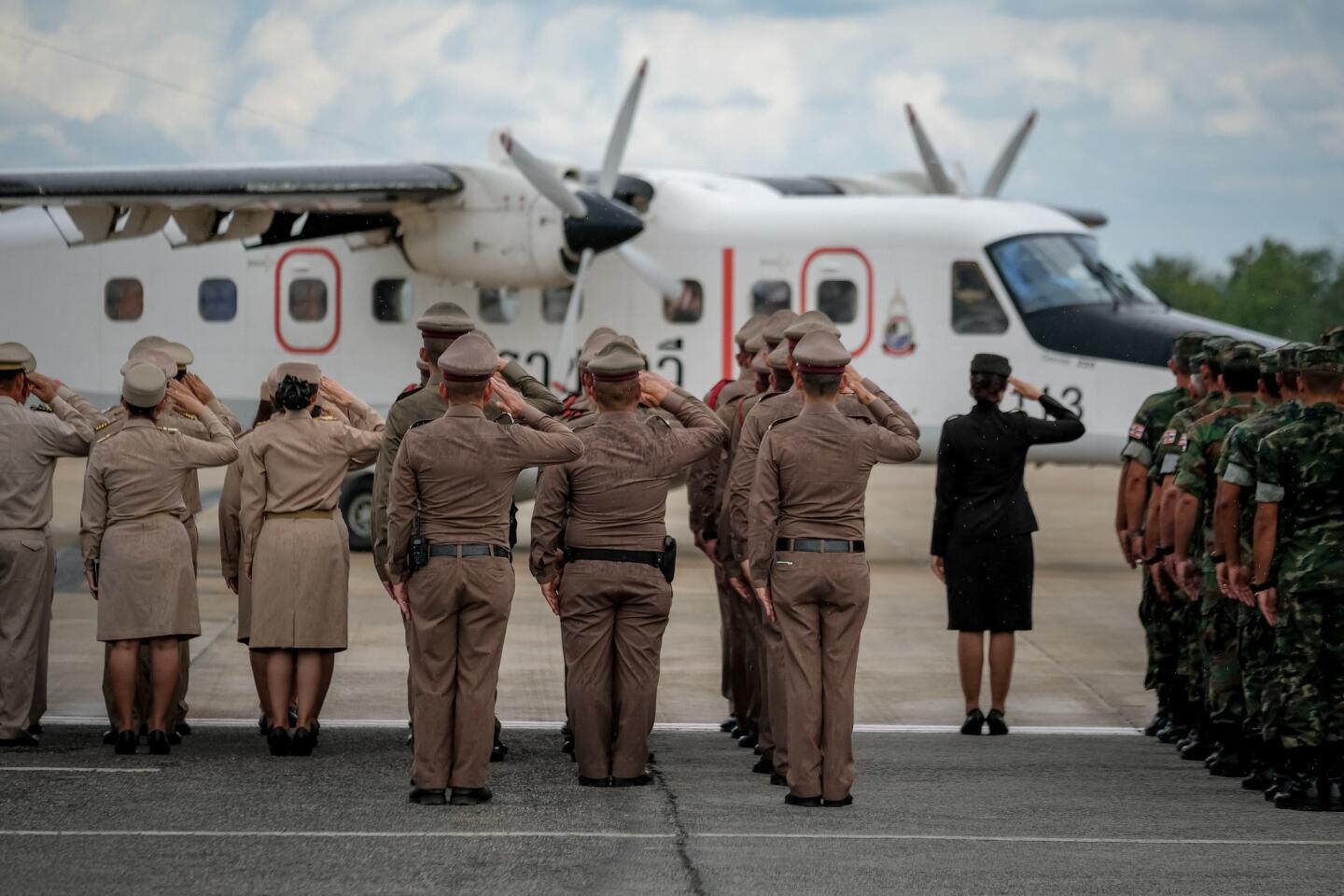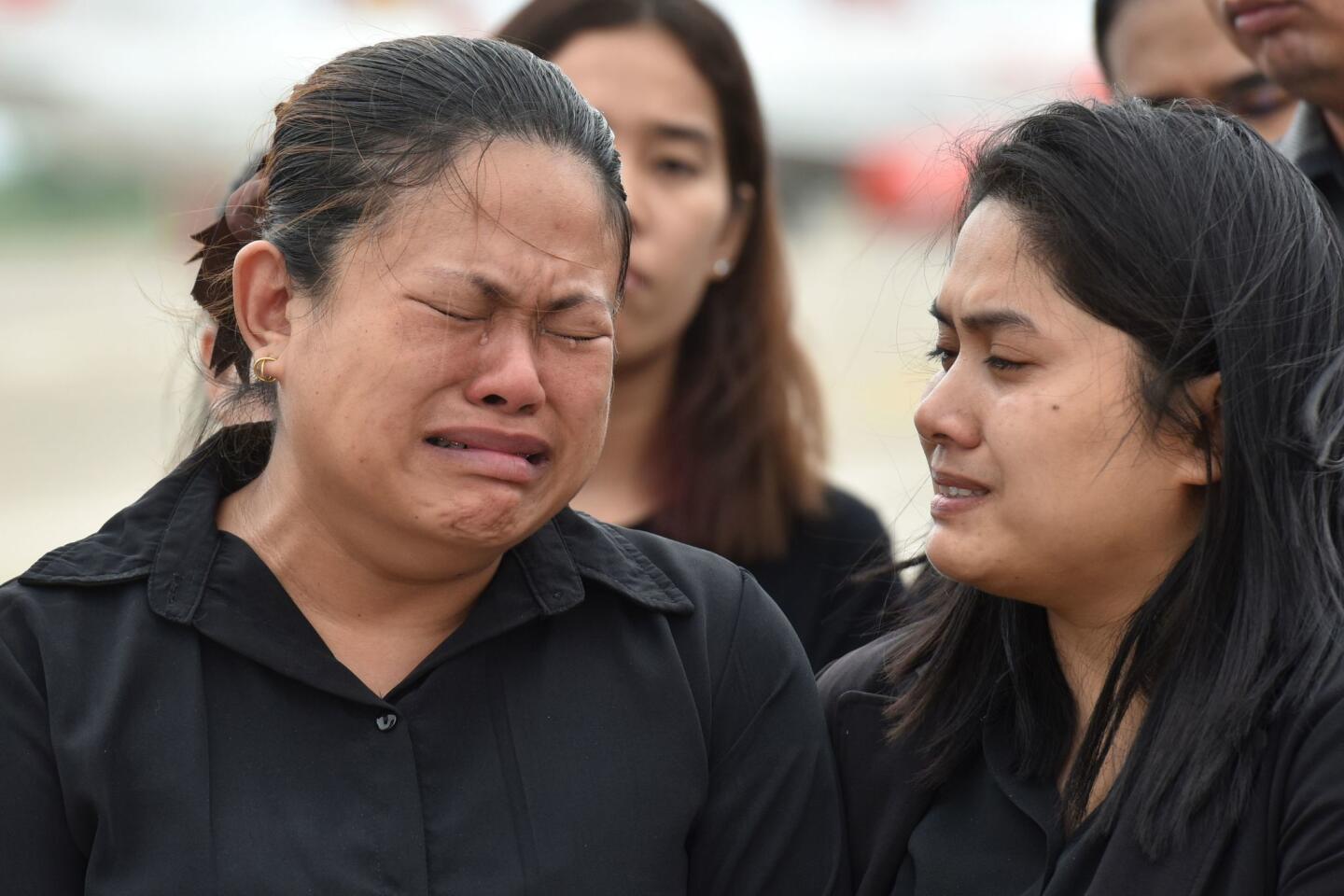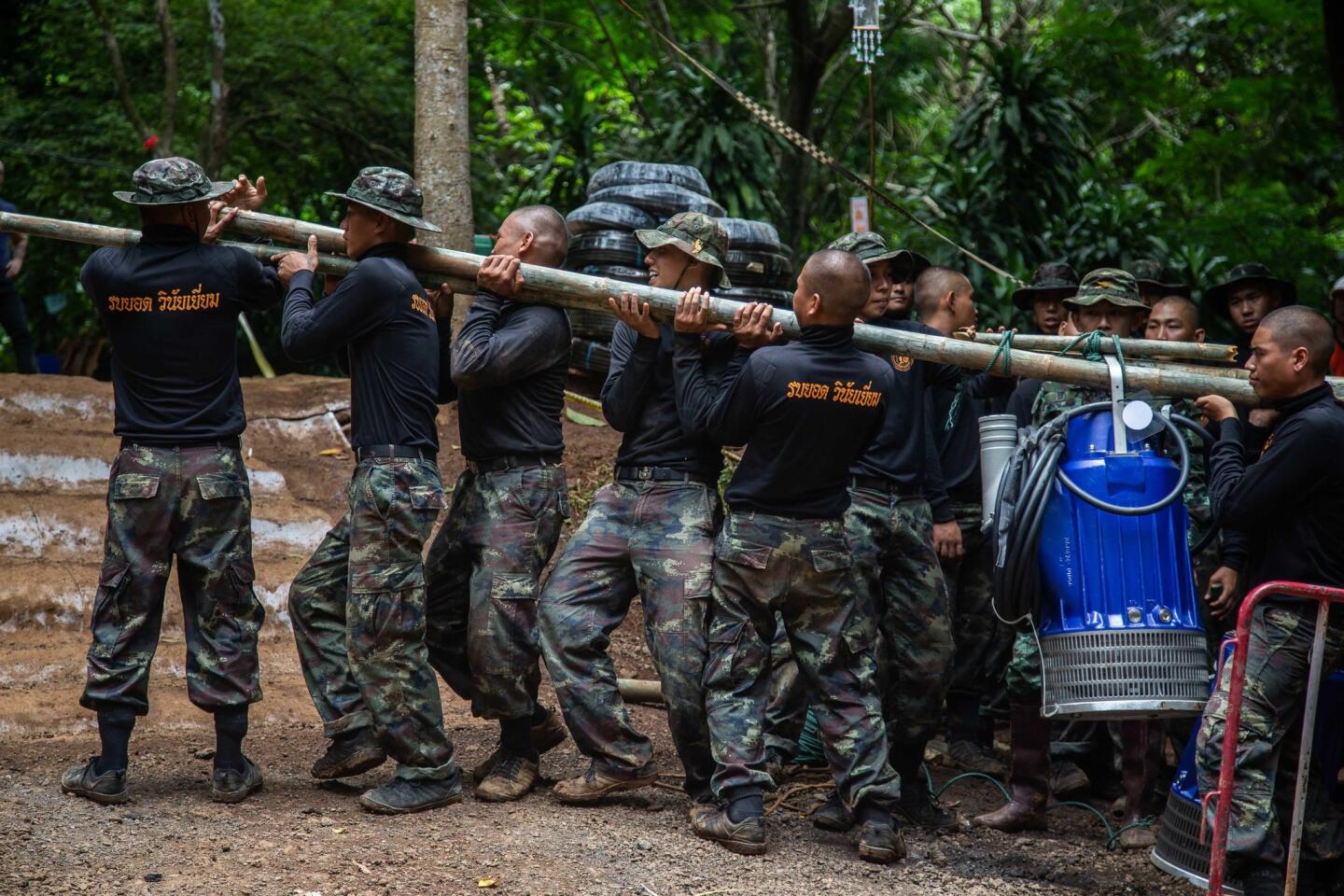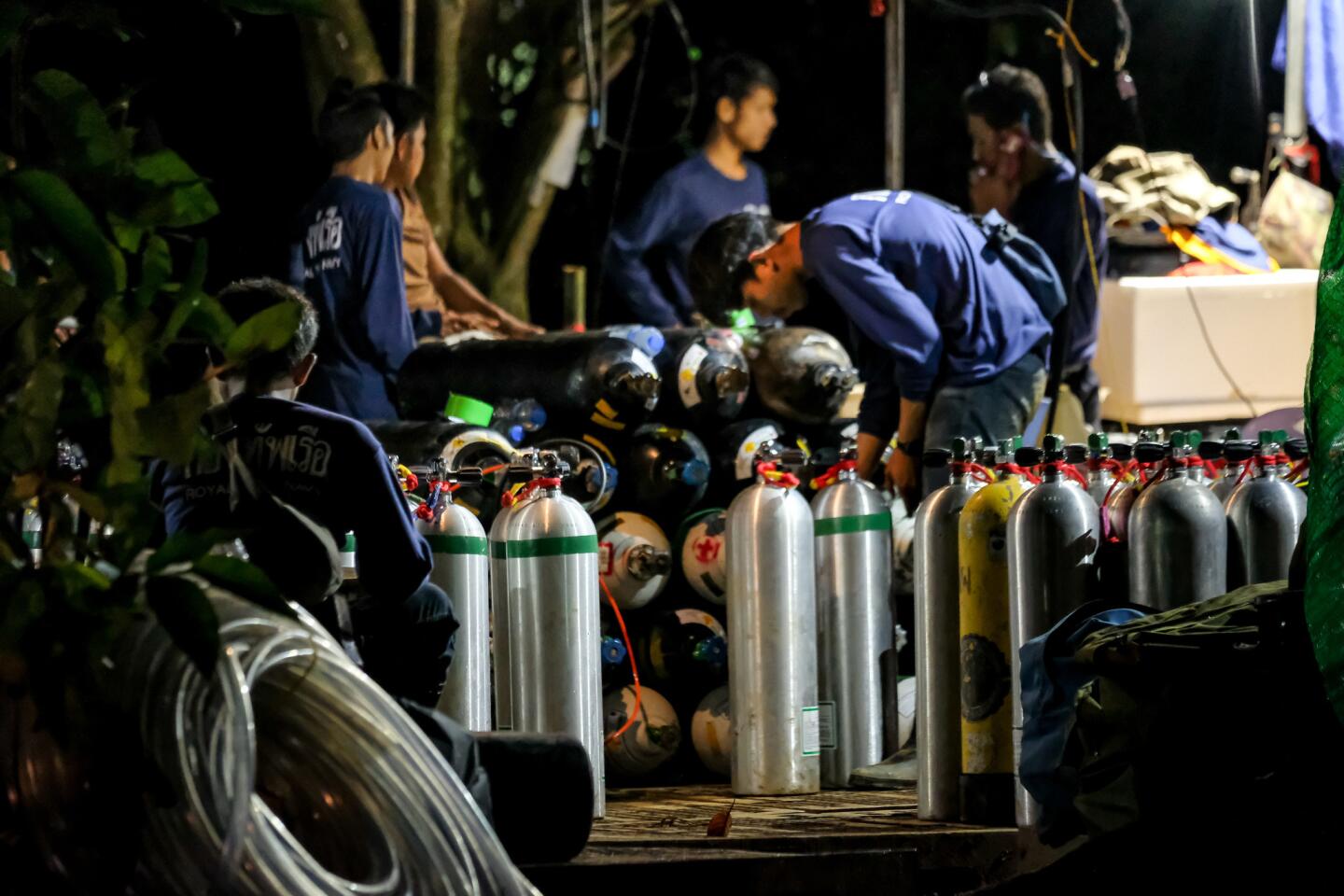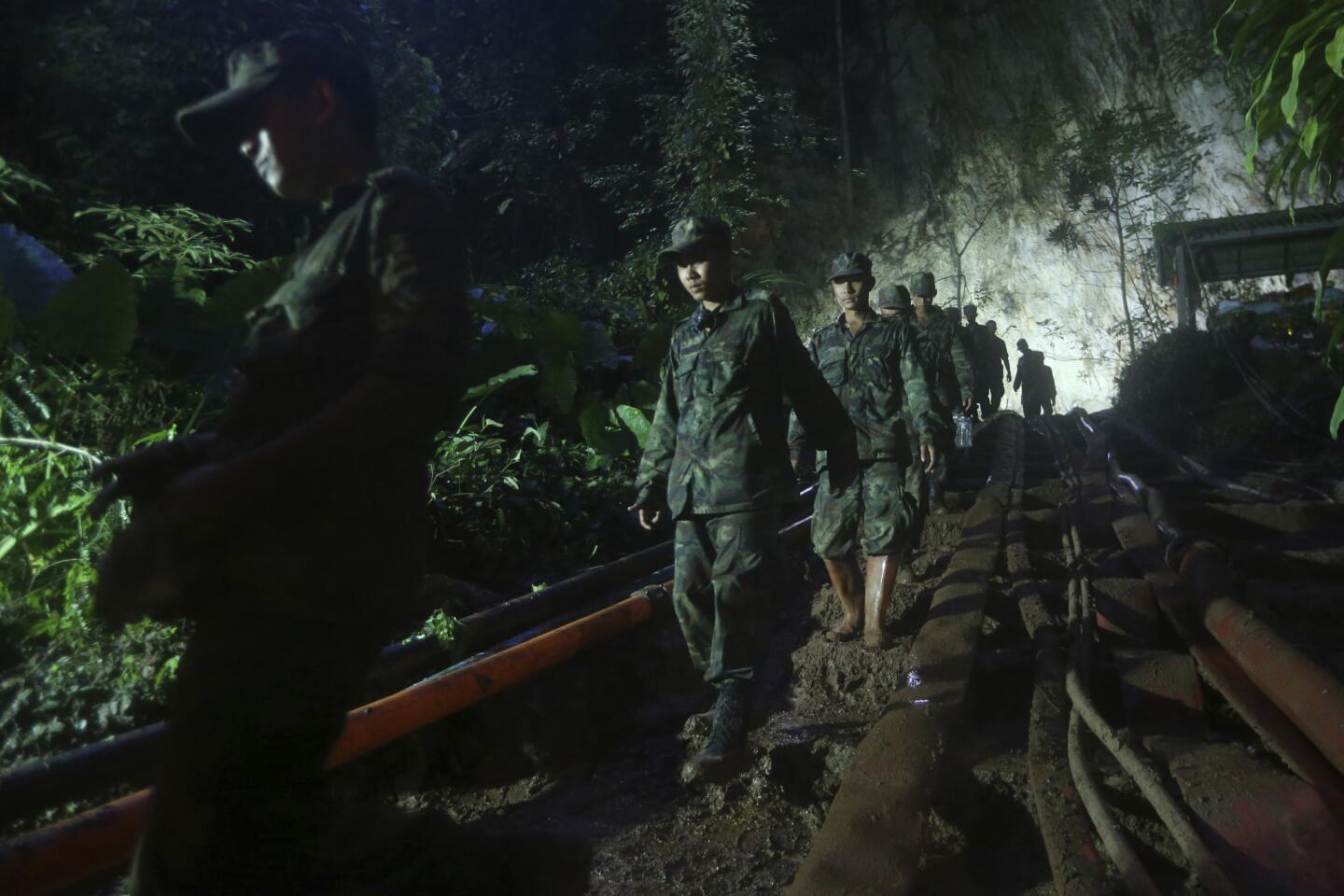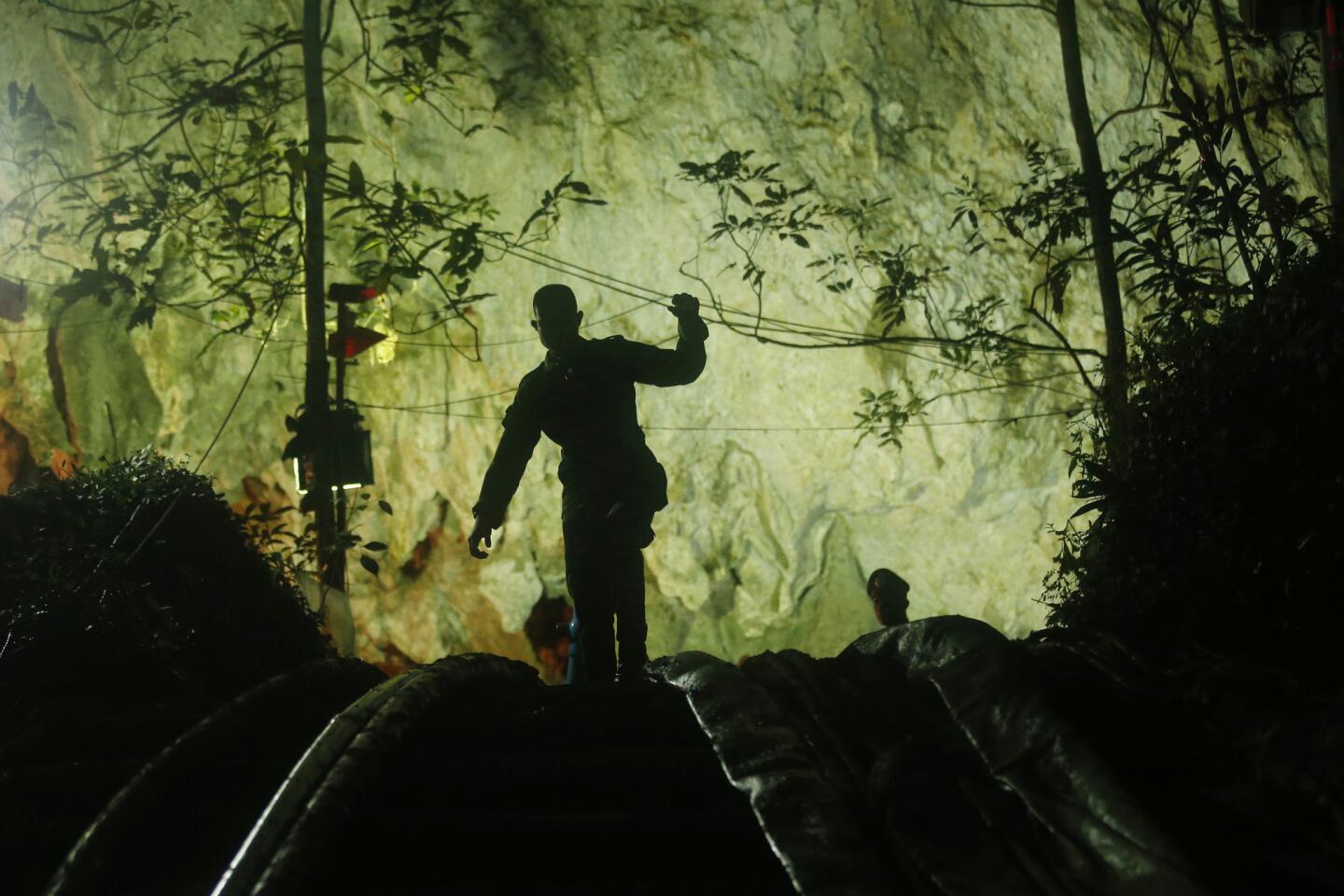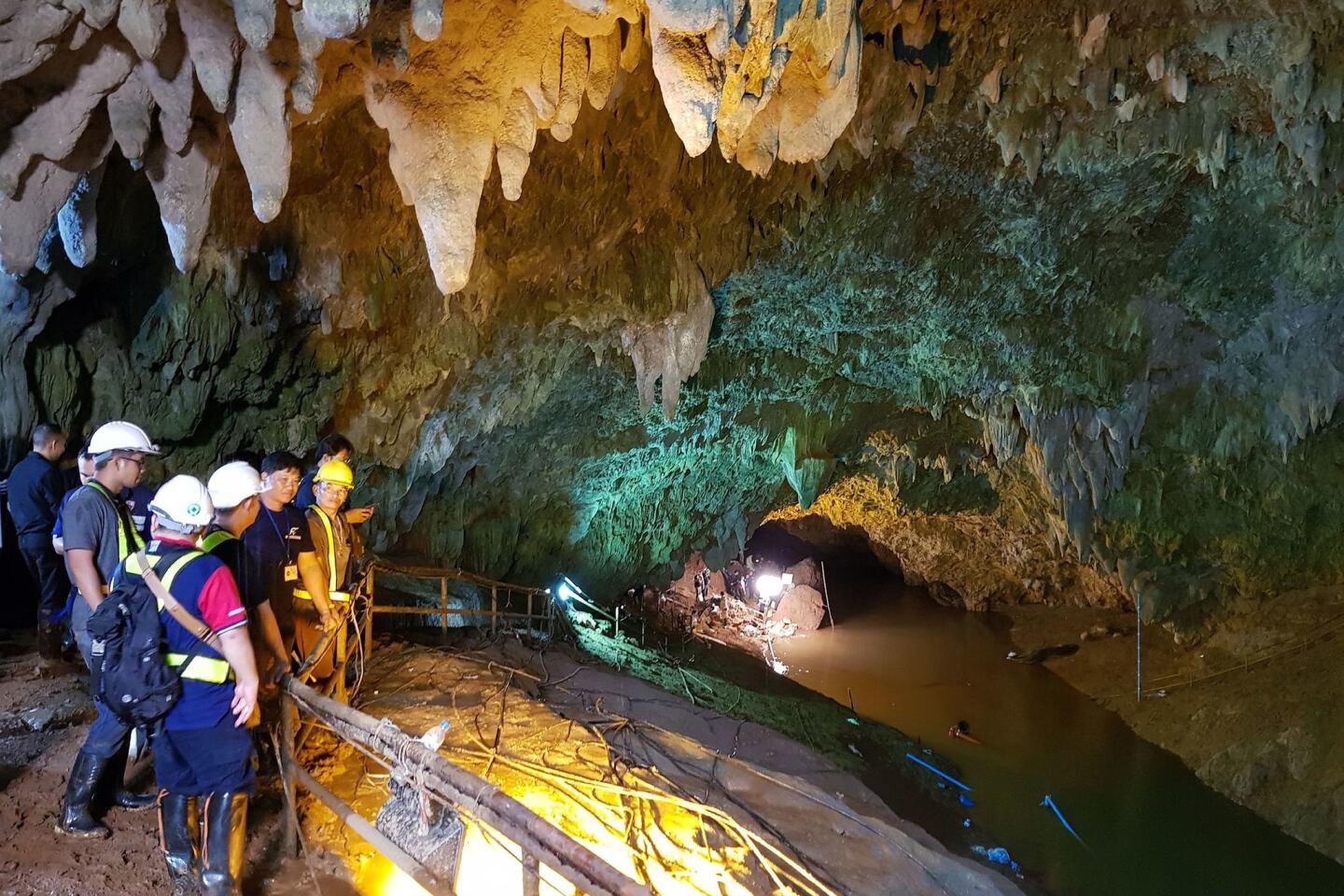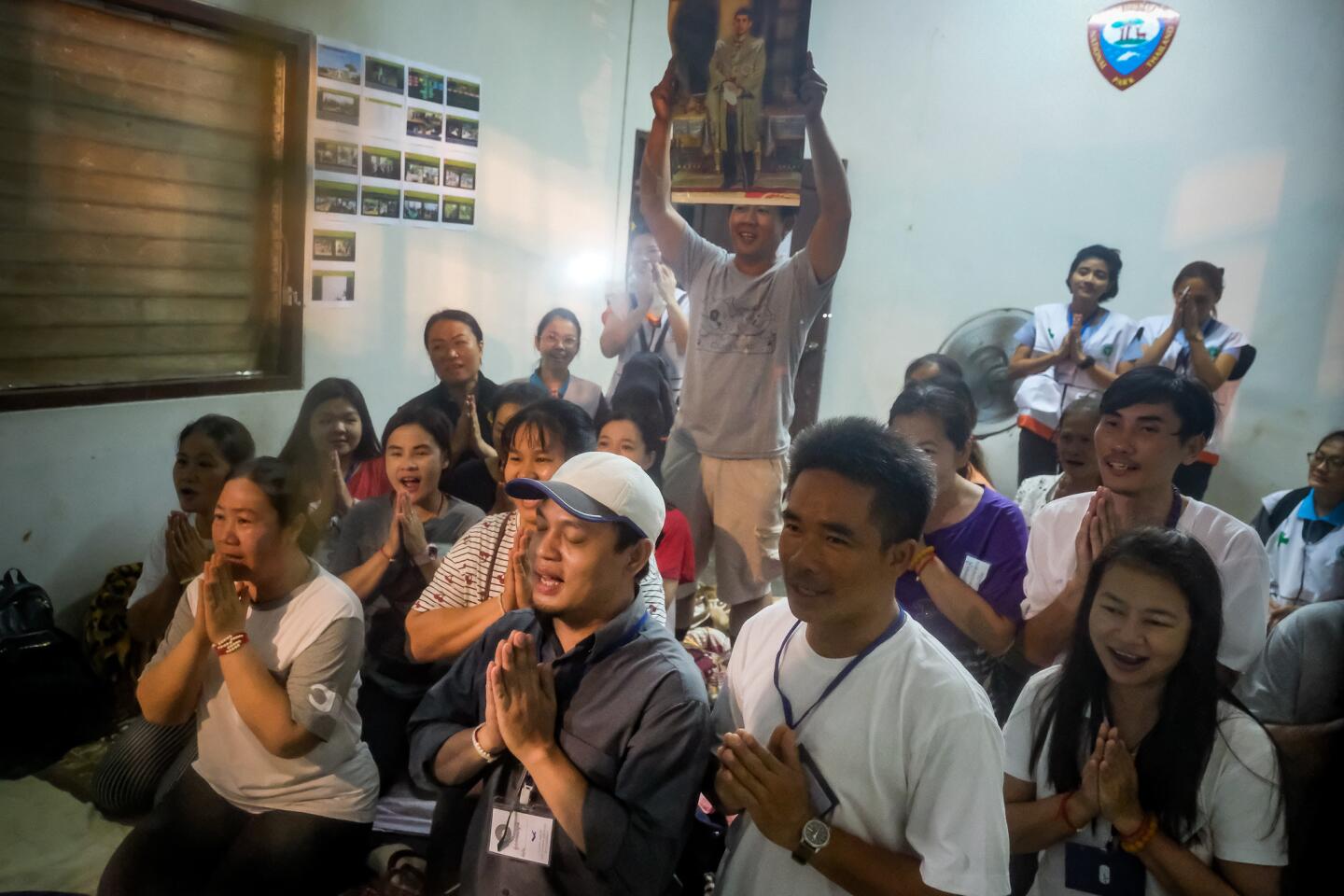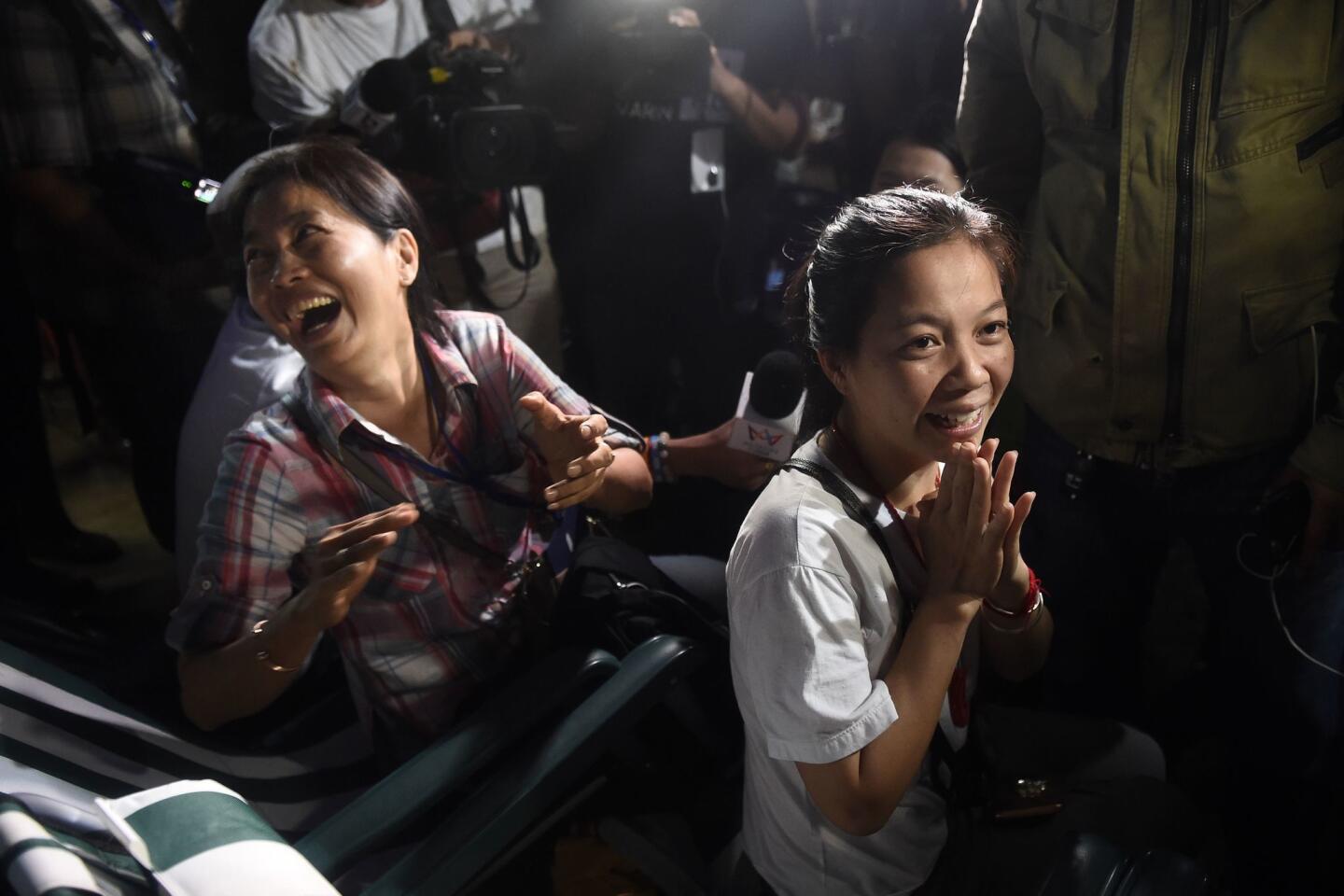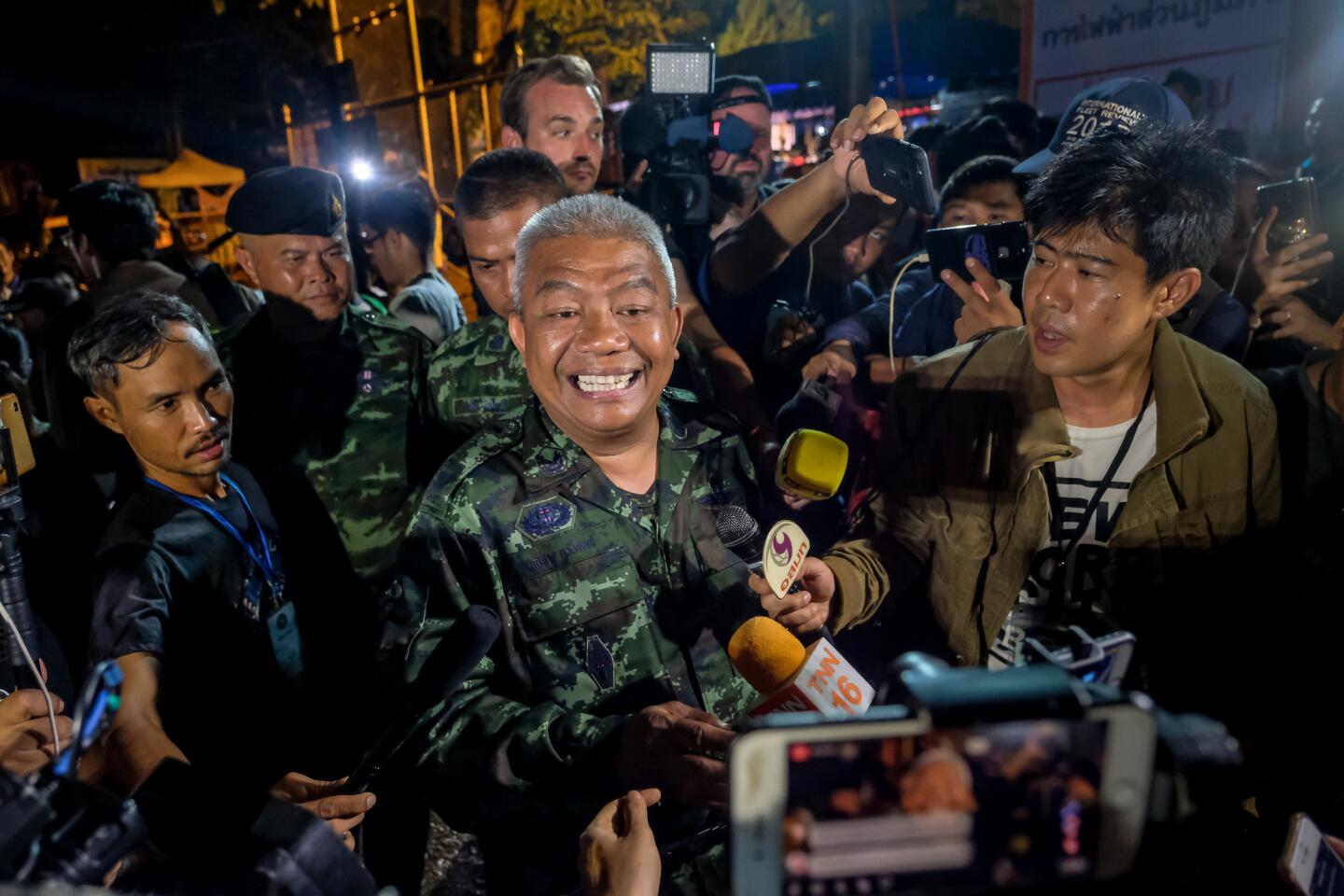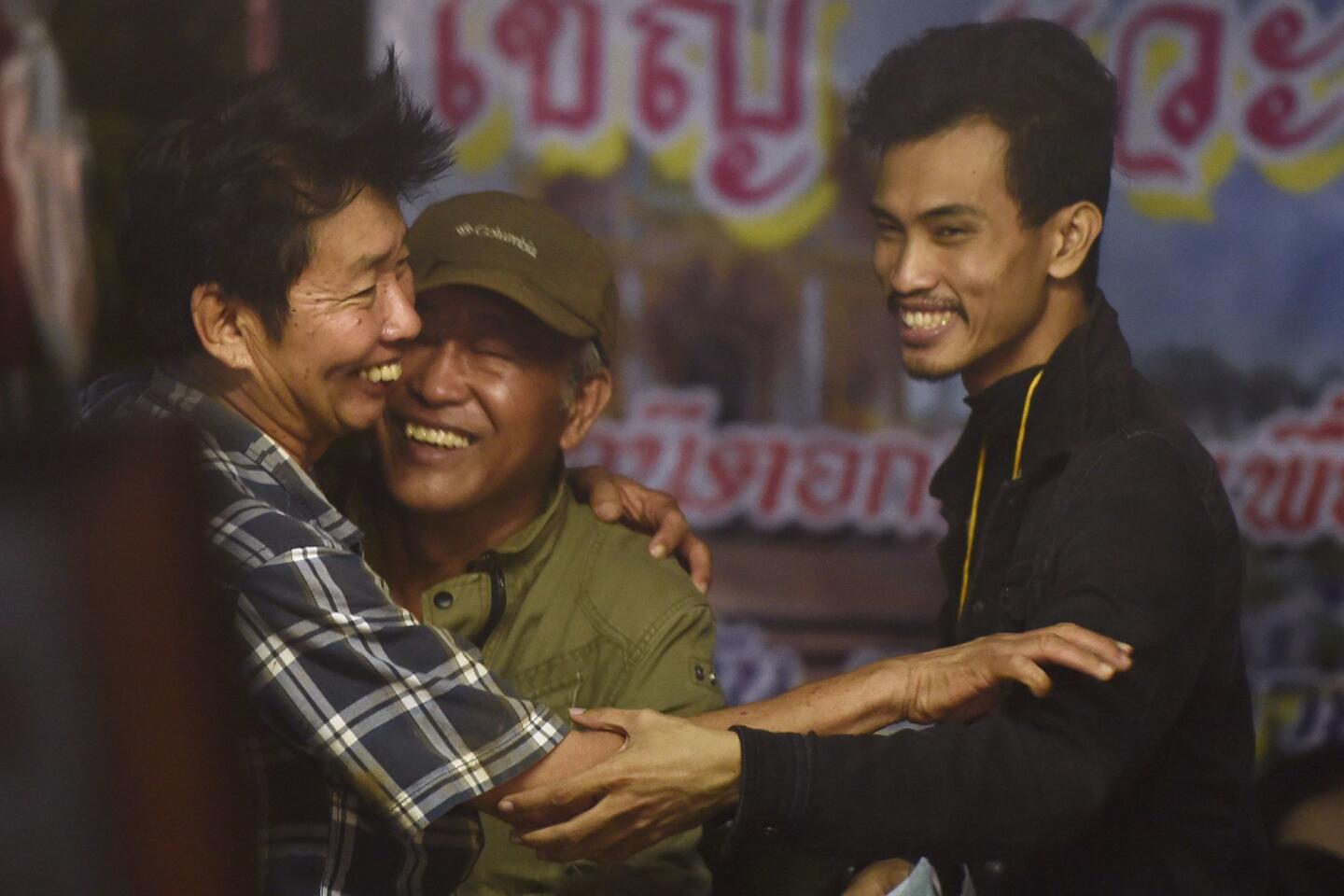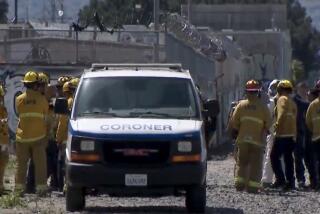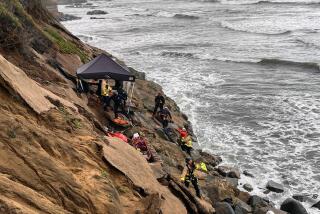Tears flow as Thai boys and parents see each other for first time since cave rescue

Twelve boys and their coach who were rescued from deep within a flooded cave in northern Thailand made two-finger victory signs from their hospital beds on Wednesday.
Reporting from Chiang Rai, Thailand — Thai authorities aired the first video Wednesday of the Thai boys rescued with their coach after being stranded in a flooded cave complex for days, in a tightly controlled event designed to protect the children from media attention and showcase pristine hospital facilities.
The young soccer players, rescued in three groups from the Tham Luang Nang Non cave in northern Thailand, were in good health mentally and physically, according to doctors, with only one boy showing signs of a lung infection. They had lost weight — an average of 4 ½ pounds each — and were hungry but largely unharmed from their ordeal.
Another boy who earlier showed signs of a lung infection has recovered, doctors said.
Video showed the boys wearing masks while resting in beds in Chiang Rai Prachanukroh Hospital in the city of Chiang Rai, near the rescue site. Several flashed a victory sign.
Some parents wept as they gazed excitedly at their children through a window looking onto the hospital ward, some waving. All wore yellow shirts in celebration of the birth month of Thailand’s King Rama X.
Some families were allowed in the ward, although they had to remain 6 feet from the boys and no hugging was allowed, doctors said.
Rear Adm. Apakorn Youkongkaew, chief of the Thai navy SEALs, said there had been no choice but to bring the group out of the cave swiftly, because oxygen levels were depleting rapidly and they would not have survived much longer.
The boys, ages 11 to 16, and their 25-year-old coach, Ekapol Chanthawong, were fitted with diving suits and face masks before being ferried from the cavern by divers. “They just stayed still and breathed as they were being carried out,” the admiral said.
The youths were sedated to keep them calm and placed on stretchers when they emerged from the water into Chamber 3, the site of the underground command center where the stretchers were passed hand to hand along a line of more than 100 rescuers. The admiral said some actually fell asleep while on the stretchers.
In a dramatic twist, a water pump failed just hours after the rescue operation ended and just as heavy monsoon-driven rains closed in, underscoring the precarious and time-sensitive nature of the operation. The admiral said the scene was reminiscent of a movie. “But this one has a happy ending,” he added.
Narongsak Osottanakorn, who headed the rescue operation and came to be seen as a hero by some, did not lay blame for the boys’ misadventure or for the costly international rescue effort.
“Some say they are heroes and some say they are villains. In our eyes, we only see them as kids who just wanted to have some fun and then an accident happened,” he said. “Personally, I wholeheartedly believe that they will grow up to be good citizens, because everybody knows them now and everybody will expect them to be.”
From mission impossible to mission accomplished: Thailand rejoices as last boys rescued from cave »
The young soccer players and their coach went missing June 23 while exploring the Tham Luang Nang Non cave complex after practice. They were located nine days later by two British divers. By Tuesday, all had been extracted from the caves. All the while, Narongsak said, he never gave up hope
“I always believed they were alive,” he said.
The rescue operation involved 922 police officers, 10 helicopters and seven ambulances, officials said. Ninety seven foreigners, including expert cave divers, engineers, rescue experts and military personnel took part.
At times, the boys were harnessed to ropes and drawn across steep caverns to spare them from climbing up and down jagged crevices and were floated across pools of water in other chambers. In one flooded tunnel, the boys had to be submerged to get through the passage, rescue specialist Derek Anderson told the Associated Press. Before the operation began, rescuers practiced the techniques with children in a local swimming pool, he said.
Three of the boys and their coach are ethnic minorities and stateless, having fled from Myanmar to Thailand, where such immigrants often face poverty and discrimination.
Asked whether some would be granted Thai citizenship, Narongsak answered briefly: “It will proceed according to the law. If they are eligible under the law, then they will be given Thai citizenship.”
He said the Tham Luang Nang Non cave complex, with its gaping entrance lined by stalactites, will be turned into a museum.
“It will attract tourists from around the world to Mae Sai and will be a learning center for children and also divers around the world.”
He said Thailand would also create a database drawn from the experience that could be used if there’s a similar crisis in the future.
After a happy ending that captivated the world, rescuers and volunteers began leaving the site, including Thawatchai Fuengkachorn, who led a pumping team with four gigantic “Naga” pumps normally used in the shrimp farming industry, according to local media outlet Khaosod English. The pump company volunteered its services for 12 days, working 24 hours a day without demanding payment.
Also departing was Dr. Richard Harris, a cave-diving and rescue expert from Australia who was at the rescue scene daily, checking the condition of the boys and the coach before finally clearing them to be extracted from the cave.
But it was the players and their coach, not medical experts, who decided the order in which the boys should leave the cave, according to officials.
Times staff writer Dixon reported from Beijing and special correspondent Mokkhasen from Chiang Rai.
UPDATES:
10:50 a.m.: This article was updated with Los Angeles Times staff reports.
This article was originally published at 7:40 a.m .
More to Read
Sign up for Essential California
The most important California stories and recommendations in your inbox every morning.
You may occasionally receive promotional content from the Los Angeles Times.


